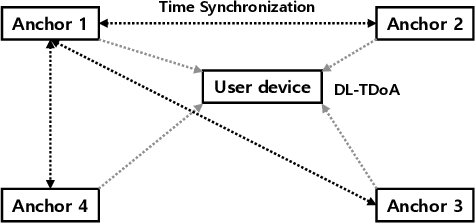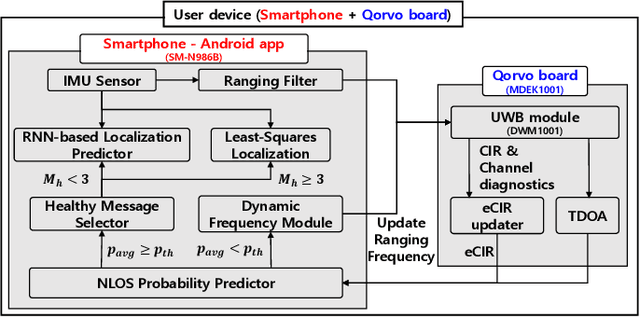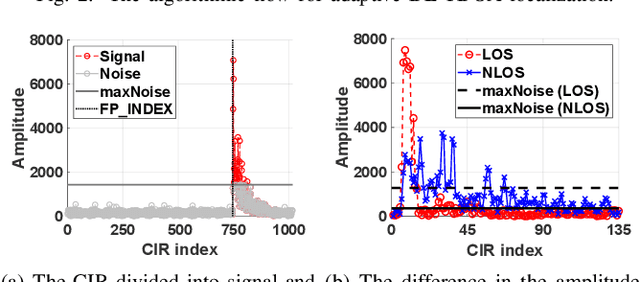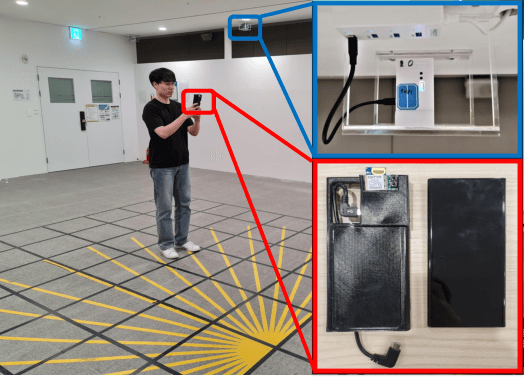Power-Efficient Indoor Localization Using Adaptive Channel-aware Ultra-wideband DL-TDOA
Paper and Code
Feb 16, 2024



Among the various Ultra-wideband (UWB) ranging methods, the absence of uplink communication or centralized computation makes downlink time-difference-of-arrival (DL-TDOA) localization the most suitable for large-scale industrial deployments. However, temporary or permanent obstacles in the deployment region often lead to non-line-of-sight (NLOS) channel path and signal outage effects, which result in localization errors. Prior research has addressed this problem by increasing the ranging frequency, which leads to a heavy increase in the user device power consumption. It also does not contribute to any increase in localization accuracy under line-of-sight (LOS) conditions. In this paper, we propose and implement a novel low-power channel-aware dynamic frequency DL-TDOA ranging algorithm. It comprises NLOS probability predictor based on a convolutional neural network (CNN), a dynamic ranging frequency control module, and an IMU sensor-based ranging filter. Based on the conducted experiments, we show that the proposed algorithm achieves 50% higher accuracy in NLOS conditions while having 46% lower power consumption in LOS conditions compared to baseline methods from prior research.
 Add to Chrome
Add to Chrome Add to Firefox
Add to Firefox Add to Edge
Add to Edge